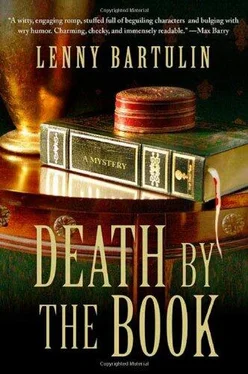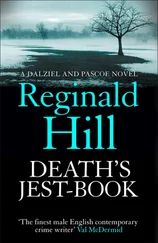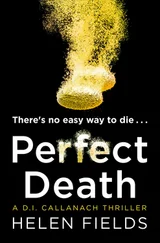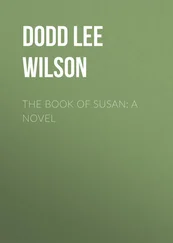“How far to Clifford’s place?” asked Jack. He wound the window down to let a little air in.
“Not far.”
A few kilometres later, the town of Bowral. Half-a-dozen more and they turned left onto a narrow sealed road, edged with gravel and shallow muddy gutters. Then another forty minutes with not much to see but a lot of silent land getting wet.
Eventually they drove into a stand of eucalyptus trees and tall pines and what looked like cedar, black with rain. Waist-high bushes and ferns, swaying in the wind. The car rumbled over a small timber bridge with a creek rushing underneath. They passed a gatehouse and drove under a thin metal arch with creepers twisted around it. There were letters welded there, too. They spelled Kininmonth in long curly script. Jack looked at MacAllister.
“It means rich bastard .”
They came into the open again and followed a curved carriage driveway up a gentle rise. Gravel crunched pleasantly as they came over the low hill. Kininmonth. After the Great Wall of China, it was probably the next thing you could see from the moon.
“Jesus,” said Jack. “Monarch of the fucking Glen.”
The driveway bisected perfect lawns, rows of white and yellow rose bushes, and thick green hedges at least ten feet high. The house was grey granite, streaked with rain. Gabled roofs, crow-stepped and castellated parapets, and six chimney stacks in case it got cold during a siege. Jack could only imagine how many rooms it had. There was probably a spare ballroom somewhere to keep the dustpan and broom in.
They got out of the car. MacAllister heaved a doorknocker the size of a church bell. They waited in the vaulted alcove, looking around. After a while, the front door opened.
MacAllister smiled broadly. “Morning, Mr Harris.”
Clifford Harris looked fifty, with longish straw-blonde hair and not-quite-ironed-out wrinkles around his eyes. He was tall and paunchy, no chin, small grey eyes and a buttery complexion. Whatever he had that might have appealed to women was mostly in his wallet. He was wearing jeans, polished black leather boots and a tight white shirt with military style lapels. There was a silver watch on his wrist that was probably no good for his posture. He seemed annoyed.
“Brendan. I wasn’t expecting you until the afternoon.”
MacAllister gave him a perplexed look. “I thought you said any time was fine?”
“It doesn’t matter now.” Clifford Harris turned to Jack.
“This is Jack Susko,” said MacAllister. “He works for me.”
Harris nodded but did not offer his hand. “Fine.” He walked back into the house. “Wipe your shoes.”
Jack had a strong feeling that no brunch would be forthcoming.
The entrance foyer echoed with their footsteps. It was about the size of a Masonic hall. The walls were covered in wood-and-gilt-framed paintings of plump, naked nymphs lying around pools of crystal water in the forest, or reclined on luxurious floor cushions with Negro attendants offering ripe fruit in baskets. Plants rested on elaborate steel stands. Large, empty vases and an array of chairs too valuable to sit on posed here and there against the walls, some tables and sideboards between them. There was a gold-edged mirror, big enough for twenty people to look at themselves — or for one person to be the centre of a lot of their own attention.
Harris led them down a wide hallway of smooth pale stone under a patterned maroon runner. After about a hundred metres he stopped. “In there,” he said, pointing. They walked into a long rectangular room with high ceilings and a window at one end covered with drawn white blinds. There was a parquet floor, a couple of armchairs, some lamps and a small purple-upholstered couch. The bookshelves were painted white.
“Can you be quick?” said Harris. “I have guests.”
“No problem,” replied MacAllister, already scanning the shelves. “We’ll leave the keys in the letterbox.”
Harris frowned. He placed a hand on one of the bookshelves. He had a vaguely effeminate manner. Jack wondered if maybe his aunts had raised him.
MacAllister angled his head and squinted at the book spines. Halfway along the shelf he stopped, pulled out one of the books and inspected it. He glanced over at Jack. “I didn’t know you collected poetry, Mr Harris.”
Clifford squinted at the book in MacAllister’s hands. “I don’t. That was a gift from a friend. He knew the poet.”
“Not for sale, then?”
“Oh no. It’s for sale. It’s all for sale.”
Jack walked over and MacAllister passed him the book. A slim, brown leather volume with gilt stamping. He flipped to the cover plate. Selected Poems . Privately bound. Signed and numbered by the author. This was number three. The author was Edward Kass.
MacAllister ran his eyes over a few more spines. “Looks like a complete collection.”
Harris half shrugged, half nodded, as if to say of course . “I’ve never looked at them,” he said nonchalantly.
“Don’t tell your friend,” said Jack. “He might get offended.”
Clifford Harris scoffed. “He wouldn’t mind at all. You can ask him if you like, he’s one of my guests. Doctor Ian Durst.”
Jack’s head snapped up.
Harris noticed the look on his face. “Do you know him?”
It took a couple of pulses of Jack’s synapses for the information to fully register in his brain. He frowned with the effort. Then his head started to hurt.
Clifford Harris repeated the question. “Do you know him?”
Jack pulled himself together. “I know he’s not a doctor anymore.”
Harris passed a soft, pink hand across his fringe of soft, dyed hair. His voice was tight with offence. “Then you don’t know a thing. And I’d prefer you leave gossip and lies outside where you wiped your feet.”
Jack grinned.
Harris puffed himself up, indignant, as though a valet had put a scratch in his Range Rover. “I’ve known Ian for fifteen years,” he said, raising his voice. “What the media did to that man’s life is an absolute disgrace.” His doughy cheeks glowed pink for a moment. “My wife still sees him regularly,” he added in a defiant tone.
“No, you’re right, it was terrible.” Jack tuned a little flattery into his voice. “So you’d know the Kasprowicz family, too?”
“Of course. I first met Ian through his father-in-law, Hammond Kasprowicz. He was a business partner of mine.”
Jack nodded, pursing his lips slightly, his face a polite, standard Oh right, yes I see kind of face. What he was thinking was how beautifully neat everything was. How unbelievable, even. Durst was here? Now? What surprised Jack, though, was that he was not surprised at all.
“So you knew the brother, Edward?”
“I only ever met him once. Many years ago. We exchanged pleasantries.”
Jack watched Harris’ face closely. Clifford shifted his eyes for an instant to MacAllister and then cleared his throat. “I suppose you’ve heard?” he said. “He was murdered two days ago. Horrible news.”
“Shocking,” said Jack. He held up the book in his hands. “Anybody ever approached you about these, offering to buy?”
Harris seemed uncomfortable for a moment. But then it passed and he went back to exuding his effeminate arrogance. “As a matter of fact, yes. Hammond Kasprowicz made an offer on them only a few weeks ago.”
It was getting better by the minute. “But you said no?”
“I’d rather lose a testicle than help Hammond Kasprowicz in any way whatsoever.”
“Your business together didn’t go too well?”
“He’s a cunt.”
“Seems a popular opinion.”
Harris moved towards the door of the library. “Even his daughter thinks so.”
Читать дальше












